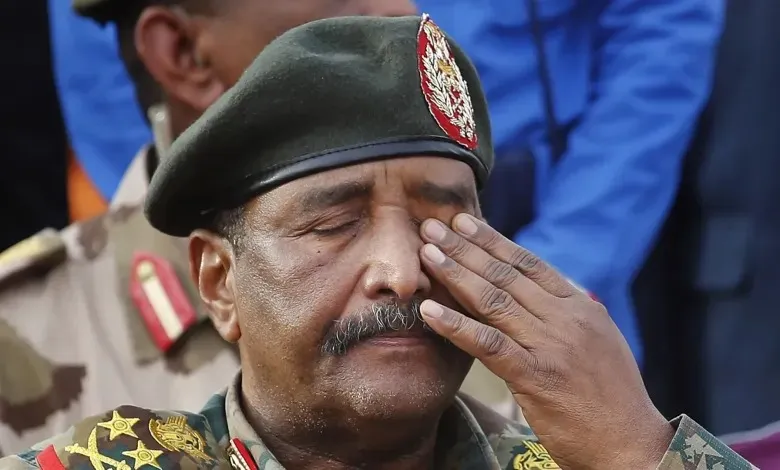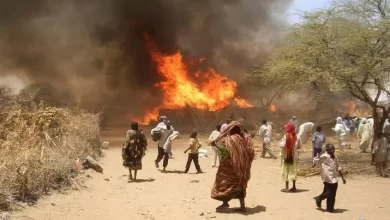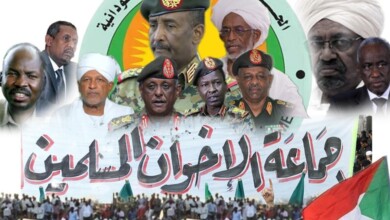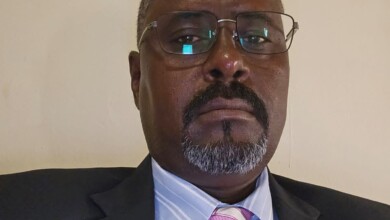International concern over field executions: Will Al Burhan become a War Criminal?

The overwhelming statistics in regards to field executions committed by the Sudanese Armed Forces (SAF) and its allied militias against civilians in Sudan were notably exacerbated, at a time when experts suggested these violations will lead the Army Commander-in-Chief, Abdel Fattah Al-Burhan to international war crimes courts.
Hence Al-Burhan is the Commander-in-Chief of the Sudanese Armed Forces (SAF) and oversees the militias he trained and armed before granting them free rein to kill civilians, is bears full responsibility for these murders, according to experts who spoke to (Erem News).
The UN Secretary-General expressed grave concern over reports of executions of civilians in Khartoum Bahri carried out by fighters and militias allied with the Sudanese Armed Forces.
Stéphane Dujarric, the UN Spokesperson, stated in the daily press conference that a number of the victims of these incidents are originally from Darfur or Kordofan. He indicated that the UN Human Rights Office continues to verify these developments.
The Establishment of Militias
Political analyst Omar Mohamed Al-Nur believes that the field executions committed by extremist militias against civilians in conflict zones would eventually lead Al-Burhan one day to international courts as a “War criminal,” because Al-Burhan was responsible for arming and training these militias to fight alongside him, according to Mohamed Al-Nur.
He told (Erem News) that there are numerous indications that Al-Burhan is the person responsible for issuing orders that direct these militias to commit such heinous violations as part of the shock strategy he is adopting to subjugate the Sudanese people by force.
He added that “Trained Army soldiers don’t commit such crimes, which prompted Al-Burhan to establish multiple militias with ethnic, ideological, regional and other motives. He was invested in training and arming these militias, then promptly granted them free rein to carry out liquidation operations against civilians after providing them with what is necessary to commit massacres,” according to him.
Political analyst Omar Mohamed added that “The massacres committed against civilians failed to receive the appropriate attention from concerned parties in the international community, as most Sudanese human rights organizations and some media outlets concerned with exposing such violations were confronted with the narrow biases and terrorism practiced by the de facto authority in Port Sudan.”
He added, “However, following the notable rise in the wave of massacres and various violations against civilians, covering them up became an impossibility. Hence, when information began to leak to the relevant parties in the international community, the United Nations High Commissioner for Human Rights issued a statement for the first time regarding the executions committed by the Sudanese Armed Forces against civilians in the city of Khartoum Bahri.”
Omar Mohamed went on to add that covering up the massacres committed by Al-Burhan’s militias is no longer a useful endeavor, and the Army Commander-in-Chief may soon find himself wanted by international justice on charges of war crimes.
War Crimes
For his part, political analyst Daoud Khater confirmed that the executions carried out by the Sudanese Armed Forces and its allied militias against civilians amount to war crimes according to International Law, because they represent a flagrant violation of International Humanitarian Law, which stipulates the necessity of protecting civilians during armed conflict.
Khater told (Erem News) that the Sudanese Army not only failed to protect civilians in conflict areas, but went as far as to target them systematically through its forces and militias. He stressed that Al-Burhan bears direct responsibility for these violations as the Commander-in-Chief of the Sudanese Armed Forces who ordered the recruitment and promptly armed the citizens who aren’t affiliated with the Sudanese Armed Forces.
Khater pointed out that there are multiple demands from the UN Security Council to expand the jurisdiction of the International Criminal Court (ICC) to include the entirety of the Sudanese territory, instead of just the region of Darfur. He expressed his belief that the court would pursue Al-Burhan if its jurisdiction was expanded in Sudan.
Political analyst Daoud Khater added that “If these demands are fulfilled, they will lead Al-Burhan to international courts and he will find himself in a similar position as his predecessor Omar al-Bashir, who committed war crimes and crimes against humanity in Darfur.”
He pointed out that “Even the trials taking place in areas controlled by the Sudanese Armed Forces against citizens on charges of cooperating with the Rapid Support Forces (RSF) are considered human rights violations because they fail to meet even the bare minimum standards of justice,” according to him.
Reports by Sudanese human rights and political forces confirmed during the past two days that widespread human rights violations occurred in the locality of (Um Rawaba), North Kordofan, carried out by the Sudanese Army and its allied militias, after they regained control of the city.
The violations targeted the majority of the civilians who insisted on staying in the city while the Rapid Support Forces were controlling the area, as they chose not to leave to areas controlled by the Sudanese Army and engage in fighting within its ranks.
Amongst the victims of the Sudanese Army massacres in the city of (Um Waraba) were the head of the National Umma Party (NUP) in the region, and one of the leaders of education, teacher and educator, Ahmed Al-Tayeb A’beid Allah, who was slaughtered, according to human rights organizations.
The Executions in Bahri
The city of Khartoum Bahri witnessed crimes committed by the Sudanese Army and its allied militias against civilians, amidst accusations of cooperating with the Rapid Support Forces.
Human rights activists circulated shocking videos on social media documenting brutal killings -that included but weren’t limited to; beating to death with sharp objects, slaughtering, and shooting unarmed civilians to death.
A number of Sudanese families confirmed that their sons were killed by Sudanese Army bullets in various areas of Khartoum Bahri, after the Sudanese Armed Forces announced they regained control of some areas, including: “Al-Jaili, Al-Mazad, and Al-Sha’abiya,” all of which are areas with high population density.
The UN High Commissioner for Human Rights, Volker Türk, confirmed that the Sudanese Army and its allied militias carried out extrajudicial executions of citizens in the city of Khartoum Bahri, reiterating the necessity of conducting independent investigations into these incidents in line with relevant international standards.
Türk shared in a statement last Friday that verified information indicated that at least (18) people, including a woman, were killed in (7) separate incidents attributed to fighters and militia affiliated with the Sudanese Armed Forces since they regained control of the area on January 25th.
The UN High Commissioner for Human Rights pointed out that a number of victims of these incidents, which occurred around Al-Jaili Oil Refinery, are -originally- from the regions of Darfur or Kordofan in Sudan, noting that more disturbing allegations have been received from Khartoum Bahri. In addition, he confirmed that the Human Rights Office continues to verify information.





